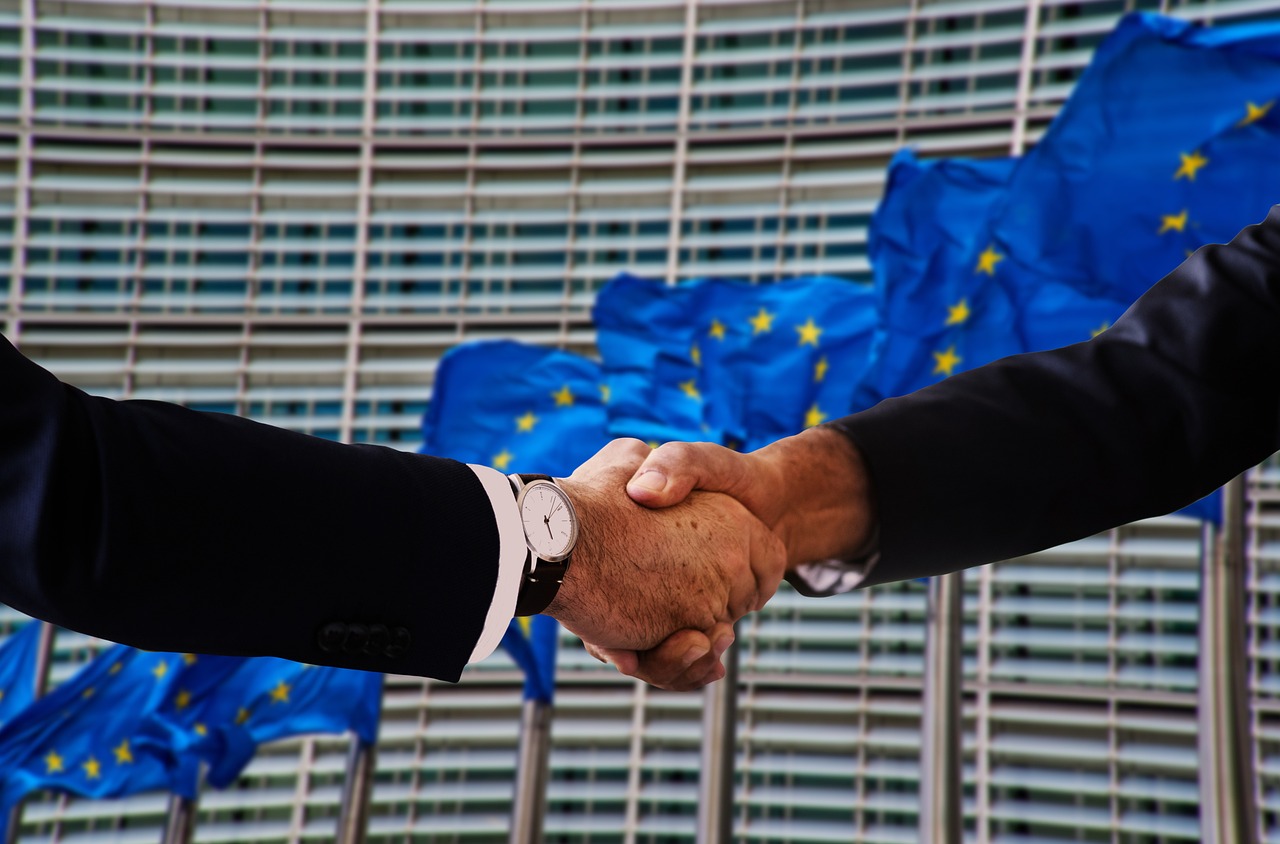Blog Archive

The Informal Turn: Soft Law Regulatory Frameworks in EU External Relations?
The use of soft law in the external dimension of EU migration law has become particularly visible recently. However, this might be a sign of a more general path to soft regulation undertaken by the EU in external affairs. Through a survey of Memoranda of Understanding from 1974 to 2019, Ilaria Ronconi and Salvo Nicolosi explain that the EU has been increasingly relying on soft law arrangements, but its use differs across various policy areas, with major risks for the constitutional fabric of EU law, especially in the area of migration.
Ilaria Ronconi is an LLM student in European Law at Utrecht University.
Salvo Nicolosi is a RENFORCE Senior Researcher and Associate Professor in European and International Law at Utrecht University Law School.

Taking Stock of the European Commission’s 2019-2024 Mandate in the Agri-food Sector: What Progress Towards Sustainability?
At the end of the European Commission 2019-2024 mandate, this post reflects on the legislative changes proposed by the European Commission to improve the sustainability of the agri-food sector. Overall, the new regulatory developments can be seen as a positive step towards sustainability in the sector, but much remains to be done as the definition of sustainability remains unclear and many areas do not appear to be on the path to sustainability, argues Clara Colonna.
Read more
Imbalance of Power in the Copyright Tug-of-War between Press Publishers and Internet Service Providers: The Example of Poland’s implementation of Digital Single Market Directive
The rise of digital platforms like Google and Facebook has transformed the media landscape, allowing them to distribute press publishers’ content while often monetising it without fair compensation. To address this, the EU introduced the Digital Single Market Directive (DSM), aiming to ensure fair use and remuneration for publishers. However, Poland’s implementation of the DSM has faced significant hurdles, revealing the challenges in establishing effective secondary rights for publishers and enforcement mechanisms, argues Malgorzata Kozak.
Read more
The European Defence Industry Programme: Revolution or Repetition?
In March, the European Commission proposed its Defence Industrial Strategy and accompanying Regulation aimed at achieving “structural defence readiness.” Although promoted as a paradigm shift, the proposed Regulation contains little innovation compared to earlier initiatives and is unlikely to fix the industry’s problems, argues Isaak de Kroon.
Read more
Ukraine War Reparations: The Legality of Confiscating Russian Assets
There are plans, especially in the West, to confiscate Russian assets with a view to transferring them to Ukraine. These plans are in tension with international law. New customary international law could crystallize, but normative developments would need the support of non-Western states to legally materialize, argues Cedric Ryngaert.
Read more
Green Crimes and Ecojustice
The conference ‘Green Crimes & Ecojustice’ was held at Utrecht University in May 2023. This conference provided a unique opportunity to hear more on the increasingly important and broad fields of green criminology, environmental sociology, environmental law, political ecology, and conservation studies, and how these are engaged with the full spectrum of crimes and harms against the environment.
Professor Nigel South and Dr Daan van Uhm, coordinator of the RENFORCE Building Block on Illicit Environmental Markets, were interviewed by Gemma Venhuizen from the Dutch daily NRC Handelsblad, who wrote an article for the newspaper. A translation is shared in this blogpost.
Read more
The Foreign Subsidies Regulation: The Extraterritorial Tax Dimension
In the fourth post in the Renforce Blog Series on the Foreign Subsidies Regulation, Dionysios Pelekis looks at the notion of a “subsidy” in relation to the notion of State aid, and discusses the extraterritorial fiscal implications of the Regulation. Taxation, and the ability to carry out economic, social, and industrial policy via the tax system, is a central aspect of sovereignty. However, due to the width of the notion of a subsidy, and to the scope of the Regulation, this new instrument seems capable of affecting the tax affairs of third countries.
Read more
The Foreign Subsidies Regulation: A Paradigm Shift in EU Competition Policy
The European Union (EU) has taken a significant step in addressing the challenges posed by foreign subsidies through the introduction of the Foreign Subsidies Regulation (FSR). The FSR, which applies from today, fills the void that existed between competition and state aid law, introducing an interdisciplinary approach to market governance. In this blogpost, the third in a special series on the FSR, Jasper Sluijs navigates some of the key aspects of this regulation and their potential consequences for EU competition law.
Read more
The Foreign Subsidies Regulation: Questions of Democratic Accountability
In the second post in a Renforce special series on the Foreign Subsidies Regulation (FSR), Thomas Verellen looks at the regulation – which applies as of today – from the angle of democratic accountability. In response to geopolitical unrest, the global expansion of state capitalism, and the climate crisis, the EU has significantly strengthened the European Commission’s unilateral trade policy toolbox. How the Commission can be held democratically accountable as it starts to yield its newfound powers, he argues, should be top of mind for everybody concerned about the democratic credentials of the European Union. The FSR cannot be seen in isolation from this broader context.
Read more
Introducing the Foreign Subsidies Regulation: New regulatory regime and enforcement powers for the EU
In this piece, the five-part RENFORCE blog series on the new Foreign Subsidies Regulation (FSR) is introduced by Urszula Jaremba.
The FSR – adopted in December 2022, and due to enter into force next week – is an extraordinary piece of EU legislation. Whereas its primary goal is to address distortions on the internal market brought on by subsidies granted by non-EU governments to undertakings active in the EU, the new rules interact and intersect with various EU regulatory regimes in the areas of antitrust, public procurement, and Common Commercial Policy. At the same time, under this novel regulatory regime, the European Commission is designated new, extensive and exclusive enforcement powers which, in turn, give rise to various questions of institutional and constitutional nature pertaining to the democratic foundations of the European Union.
Whereas this blog post offers a general introduction to this new and fascinating regulatory regime and its main features, other authors (details below) will shed light on the FSR from the perspective of their own academic disciplines.
Read more
